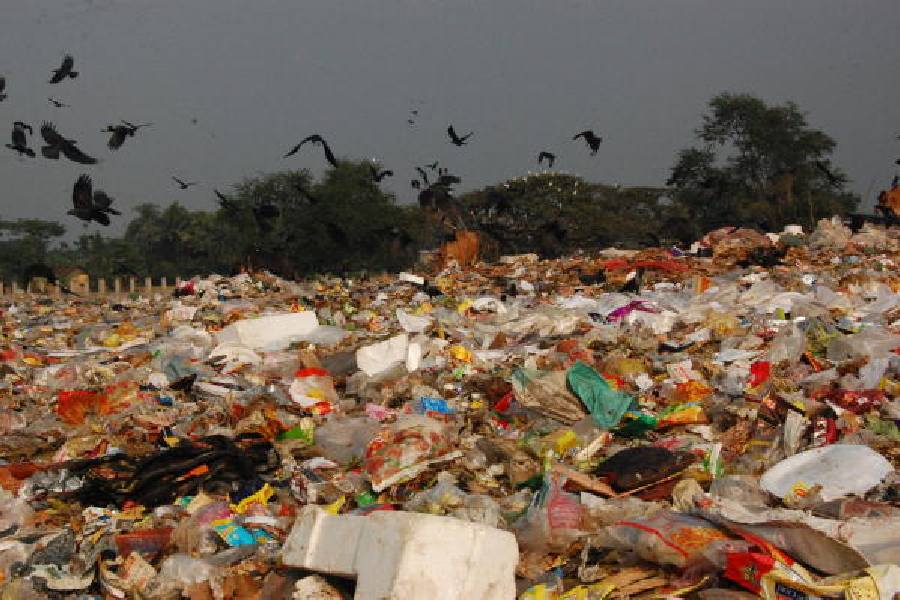A special cleanliness drive will be taken up across the state on Sunday and Monday to spot and destroy sources of mosquito breeding, a decision aimed at arresting the spread of dengue.
A meeting on Wednesday on the current dengue situation in the state, chaired by the chief secretary, decided to undertake the special cleanliness drive.
The meeting also decided that cleaning of tourist spots across the state will continue during the Puja holidays.
A senior official of the Kolkata Municipal Corporation (KMC) later said the cleaning will continue in all wards of Kolkata because the entire city turns into a tourist spot during the Puja.
Any accumulated waste is likely to have containers — glasses, bottles, cups and plates, among others — that can turn into mosquito-breeding sites if water accumulates in them, said an entomologist.
The Aedes aegypti mosquito, which transmits the dengue virus, can breed in a spoonful of water. The egg of an Aedes mosquito can develop into an adult in seven to 10 days if the water remains undisturbed, the entomologist said.
Over 1,200 fresh dengue cases had been reported from the Kolkata municipal area between September 29 and October 6, mayor Firhad Hakim said on Friday.
The sharp rise in dengue cases showed that the threat from the disease was far from over. KMC officials said dengue infections, going by the data of the past few years, remain high in September and October.
A statement issued by the state government on Wednesday said: “Special cleanliness drive will be taken up on 15 and 16 October, 2023 at all villages and municipal wards, hospitals, schools, all government premises etc.”
“Leave of all the officials/staff associated with dengue management throughout the state will remain cancelled till the situation improves,” it said.
“Cleanliness drives will continue inside the hospital premises on regular basis.”
The Telegraph reported on Wednesday that the terrace of staff quarters for Group D employees on the SSKM Hospital campus had plastic glasses, styrofoam plates and glass bottles. All these are potential breeding sources for mosquitoes.
During a visit to the Calcutta Medical College and Hospital last month, a vector-control team of the KMC had spotted mosquito-breeding sites on the campus.
The website of the World Health Organisation says “the best preventive measure for areas infested with Aedes mosquito is to eliminate the mosquitoes’ egg laying sites — called source reduction”.
